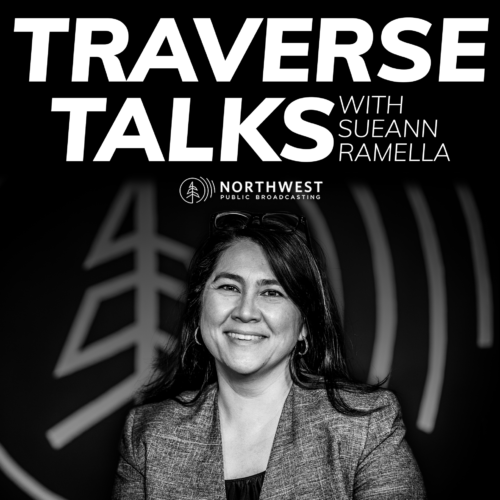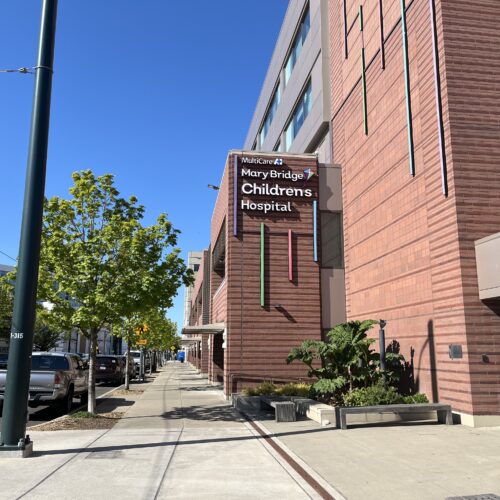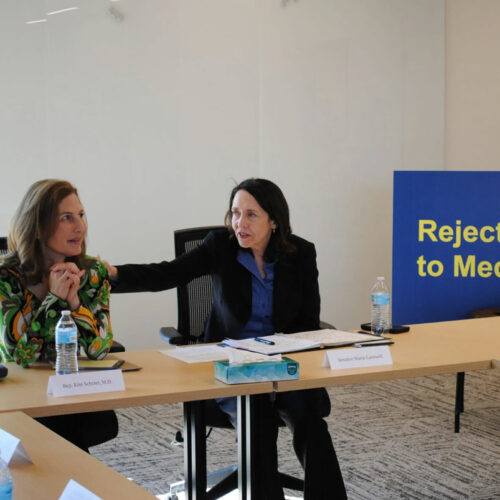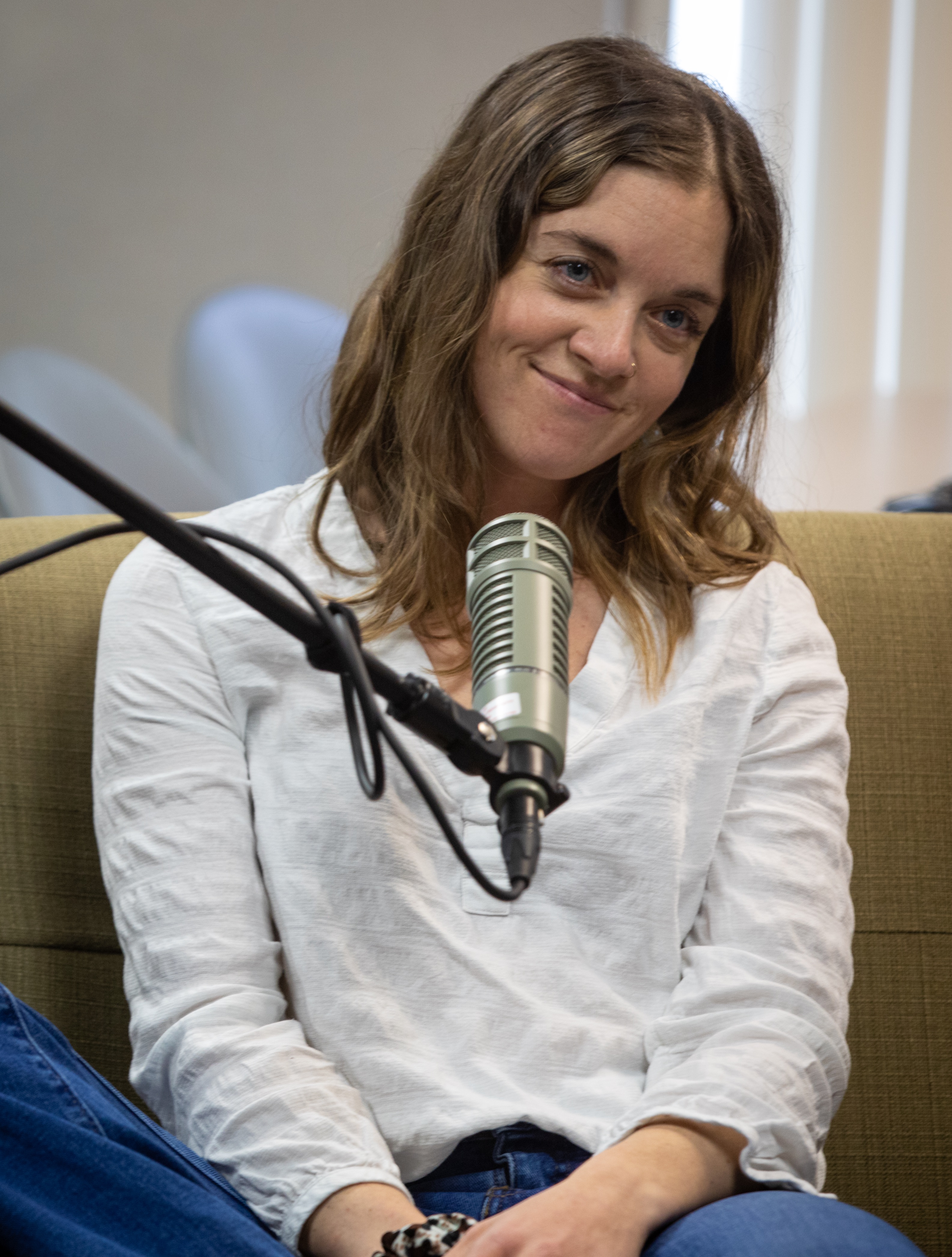
Navigating Rough Waters and Tough Conversations ‘Traverse Talks’ Episode 36 – With Outdoor Writer and Guide Emerald LaFortune
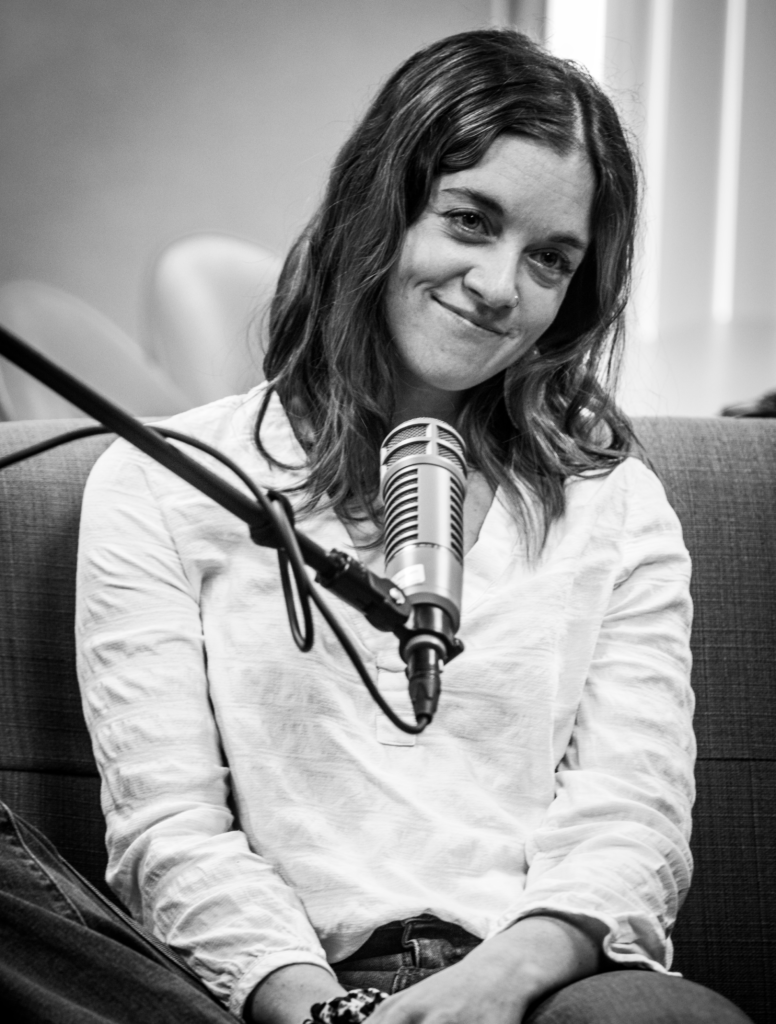
Emerald LaFortune grew up being lured into the wilderness by her parents, who placed little pieces of candy in the middle of hiking trails to guide her along. Now she works as an outdoor writer, whitewater and fly fishing guide, a project manager and community builder in rural Idaho. In this episode of ‘Traverse Talks’ with Sueann Ramella, Emerald shares ideas about how to make outdoor spaces more welcoming, inclusive and self-aware. Listen to this heartfelt conversation to learn more about moving past binaries and accepting the fluidity in life and yourself.
SUBSCRIBE: Spotify / Apple Podcasts / NPR One / YouTube
Listen
Conversation Highlights:
Moving Past Binaries Into The Unknown:
Sueann Ramella: So you, in this space, you do a lot of writing about the outdoors and bringing attention to issues. And now I wanna talk about you and your exploration of yourself as your identity, specifically your sexual or gender identity, are you queer are you non-binary?
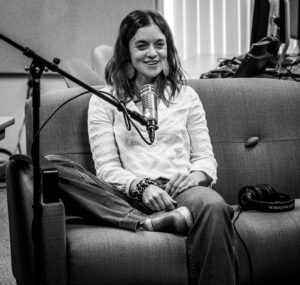
Emerald LaFortune: So, I identify as a woman. It’s felt really grounding and right to me, with a lot of love towards all my non-binary royalty out there. For me, I identify as part of the LGBTQ+ community as a bisexual woman and I include queer in that descriptor as well. And it was sort of an adult onset realization for me. So it’s been interesting over the last five years to really piece that apart and examine it. I think there’s a lot of bisexual and pansexual erasure in our media and our culture and so it can sometimes be hard to put your finger on that label. But one thing I’ve really learned from that LGBTQ community is being able to embrace fluidity and change. And I think labels are helpful in that they help us find community and help us understand our own experiences. And also a label isn’t or shouldn’t be a shackle. At least when you’re discussing something like sexuality.
Sueann: That’s very insightful. But when you have conversations with people of a different generation or different background, how do you explain what fluidity means?
Emerald: You know, this sort of comes up [since] I live now in rural Idaho, which is an interesting space because on one hand you still have the internet in rural Idaho and especially the younger generations are really understanding themselves in much more broader ways, but on the other hand, it’s not as much a part of the conversation. And I think if someone’s in the outdoors space sometimes I think when people want to latch onto binaries, a lot of that’s white supremacy, dominant culture, all of those things that take a lot of work to dismantle. A lot of it is fear of the unknown. And when you think about folks who do outdoor sports, whether that’s elk hunting, fishing, whitewater rafting, spending time in the mountains … the whole point of those things is to move into a dynamic-unknown landscape, right? So, if you can kind of make the parallel for them of like, “Hey, I know you’re used to moving into spaces that are uncomfortable, moving into spaces you don’t understand.” A lot of it is just building trust so they can hear you when you start to bring that up. But sometimes that can be a parallel that people can hear of, like sometimes they’ll say, “You don’t strike me as somebody who’s scared very often. Why does this bring up fear for you?” And a lot of it, for better or worse, is just living your example and folks being around someone of that lived example. Whether that happens in a TV show or in their real life.
Sueann: Hmm. I never thought of it that way. Because you have a whole group of people who have been very uncomfortable hunting elk or, as some of our friends recently told me, surrounded by wolves. Hearing them howl and knowing, yeah, you ain’t gonna be able to do much right now. So yeah, that’s a really good point. That parallel … how did you figure that out?
Emerald: Hmm, maybe trying it every other way and having it not work.
Grief Is Like Water:
Sueann: You mentioned grief and we are just talking about growing up in your family exposed you to the outdoors and these wonderful moments. And your dad passed away when you were a teenager.
Emerald: Yeah, 19.
Sueann: 19. So if you’re comfortable Emerald, I’m wondering what should people understand about a teenager or a young adult losing a parent?
Emerald: Mm, mhm. I think that it’s interesting. [I] grew up in Moscow and went to college at University of Montana and I was really focused on building community around the outdoors, that’s who I wanted my friends to be. And I ended up with this amazing group of girlfriends who all connected based on the outdoors. And then it slowly started coming out that almost all of us had lost a parent at one time or the other. So I’m about a junior in college at this point and finally sort of looked around and thought about the context of my friendships and realized that a lot of us had lost a parent really early. And that’s all to say that even if I think about that group of us who had all lost parents as children or teens were all super different in the way that we wanted to talk about it, in the way that we processed it, in the way that our families sort of reformed after. So I think the first thing is just that everyone’s experience is really different and that I think you’re allowed your experience regardless of what it looks like. For me, personally, a counselor that focused on grief was really helpful. I’m also a verbal processor so therapy works really well for me, whereas I think for others it doesn’t feel quite right.
Sueann: What did you take away from those counseling sessions?
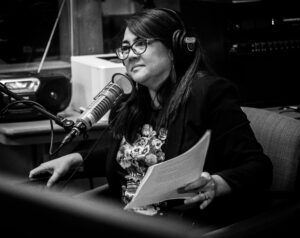
Emerald: Oh gosh, well I still work with that counselor now, which has been such a gift, you know, 12 years with the same support person. So we’ve been through a little bit of everything, grief or not. But I think as a teenager, you know, that’s sort of a natural transition point with your family anyway, right? You’re leaving a town, I grew up all 18 years in Moscow, and so it was a natural transition point anyway that I was in Montana and starting to sort of build my own adult life. And so we talk a lot about just that transition and she held a lot of space for me to say, “Okay, I’m sad about Dad.” He died of a glioblastoma tumor. We knew for about a year that he would die of cancer and weren’t quite sure when it was gonna happen and he had a pretty good quality of life for a number of those months where he was doing trips and getting to spend time with family and old friends. And so in those more prolonged moments she really held space for me to say, “Okay, I’m sad about Dad but also, like, I’m really worked up about this class that I’m in and this professor, or I’m having a friend moment.” I think that for people, sometimes grief can be really all-consuming and it’s the only thing you’re moving through. But often [grief’s] more of a strand that’s just weaving in all the other parts of your life that you’re still navigating. And so I think just a lot of self-compassion through any grief. And I love the visual of grief as a spiral, where I think people think of it as this one-way journey, like: you’ll be mad, you’ll deny it, you’ll be really sad, you’ll get depressed and then you’ll never think about it again. And the visual that’s really helped me, and it’s sort of water-related which makes sense, is that idea of a spiral or an eddy where you move. As time passes you tend to move further away from the painful points of it. But I think anyone who’s experienced that grief knows that you never just get over losing a parent.
What Nature Can Teach Us About Ourselves:
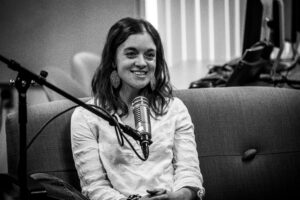 Emerald: Yeah, and there’s a lot of fear for me in being alone. I’m a small-statured woman. I’m pretty fem in myself presentation. And so working, I think people think like, “Oh, you camped by yourself, or you’re a guide, or you spend a lot of time outdoors. You’re fearless and I’m fearful so I can’t do that too.” And I want to dispel that and say, “I’m scared every time I go. If not outwardly fearful and scared, then there’s always a little something at the back of my head that’s watching my surroundings and that’s processing through where I’m at and what the consequences of being there are.” … Often folks, when we’re scared in the outdoors, it has nothing to do with grizzly bears and mountain lions and everything to do with other people. And that’s I think really important as people, well-meaning folks who don’t experience that fear as regularly start to say like, “How can we increase access? How can we get folks to come camping is understanding and being able to empathize with that fear?” But it’s worth it and it can make going for a hike by yourself feel like summiting a mountain when it comes to the adrenaline response sense of reward at the end.
Emerald: Yeah, and there’s a lot of fear for me in being alone. I’m a small-statured woman. I’m pretty fem in myself presentation. And so working, I think people think like, “Oh, you camped by yourself, or you’re a guide, or you spend a lot of time outdoors. You’re fearless and I’m fearful so I can’t do that too.” And I want to dispel that and say, “I’m scared every time I go. If not outwardly fearful and scared, then there’s always a little something at the back of my head that’s watching my surroundings and that’s processing through where I’m at and what the consequences of being there are.” … Often folks, when we’re scared in the outdoors, it has nothing to do with grizzly bears and mountain lions and everything to do with other people. And that’s I think really important as people, well-meaning folks who don’t experience that fear as regularly start to say like, “How can we increase access? How can we get folks to come camping is understanding and being able to empathize with that fear?” But it’s worth it and it can make going for a hike by yourself feel like summiting a mountain when it comes to the adrenaline response sense of reward at the end.*Question and responses were edited for length and clarity.
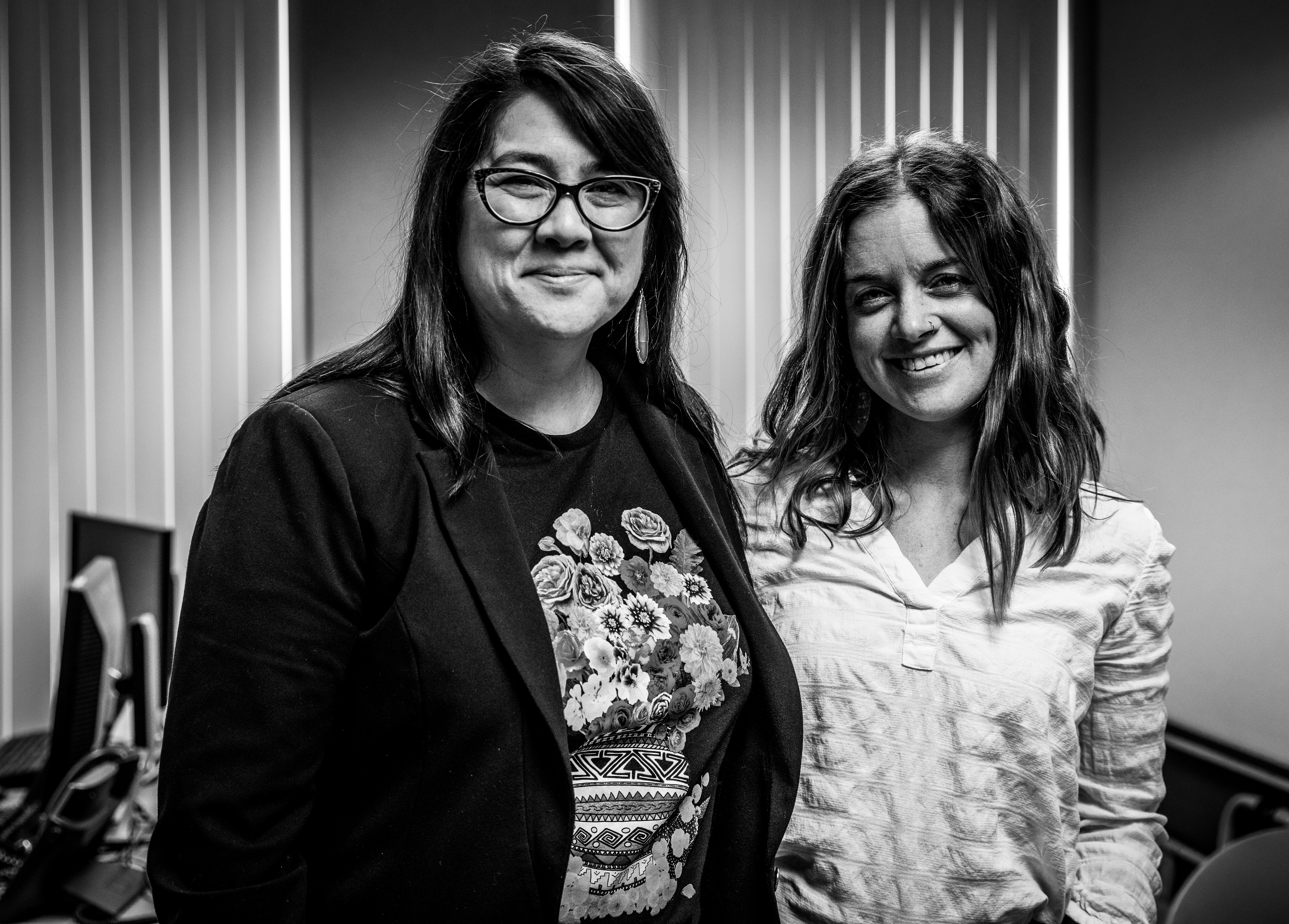
Related Stories:
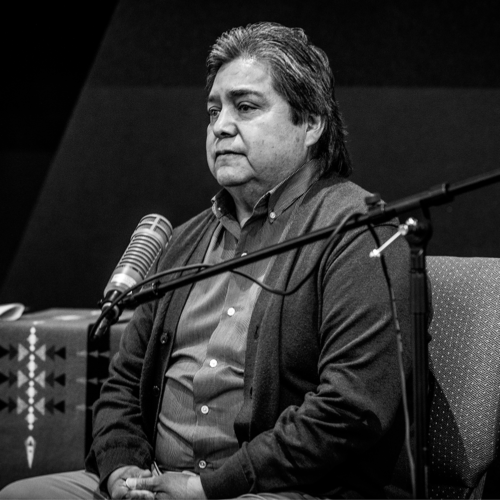
Captive Returns Home: The Story Of Wetxuuwíitin – ‘Traverse Talks’ Episode 42 – With Chairman Samuel Penney
Photo of Sam Penney recording Traverse Talks at the Nez Perce National Historic Park on March 10, 2022. Imagine a stranger took your family’s heirlooms and then offered you an
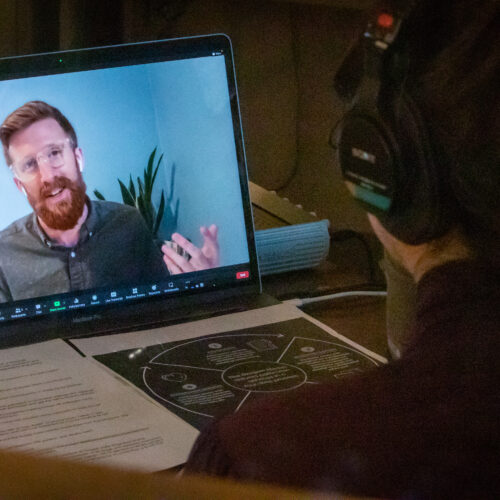
Psilocybin: Psychology, Policy and Possibilities – ‘Traverse Talks’ Episode 41 – With Sam Chapman
Sueann Ramella interviews Sam Chapman virtually on April 19, 2022. What do you really know about psilocybin, commonly known as magic mushrooms? Research on the substance has lagged behind in
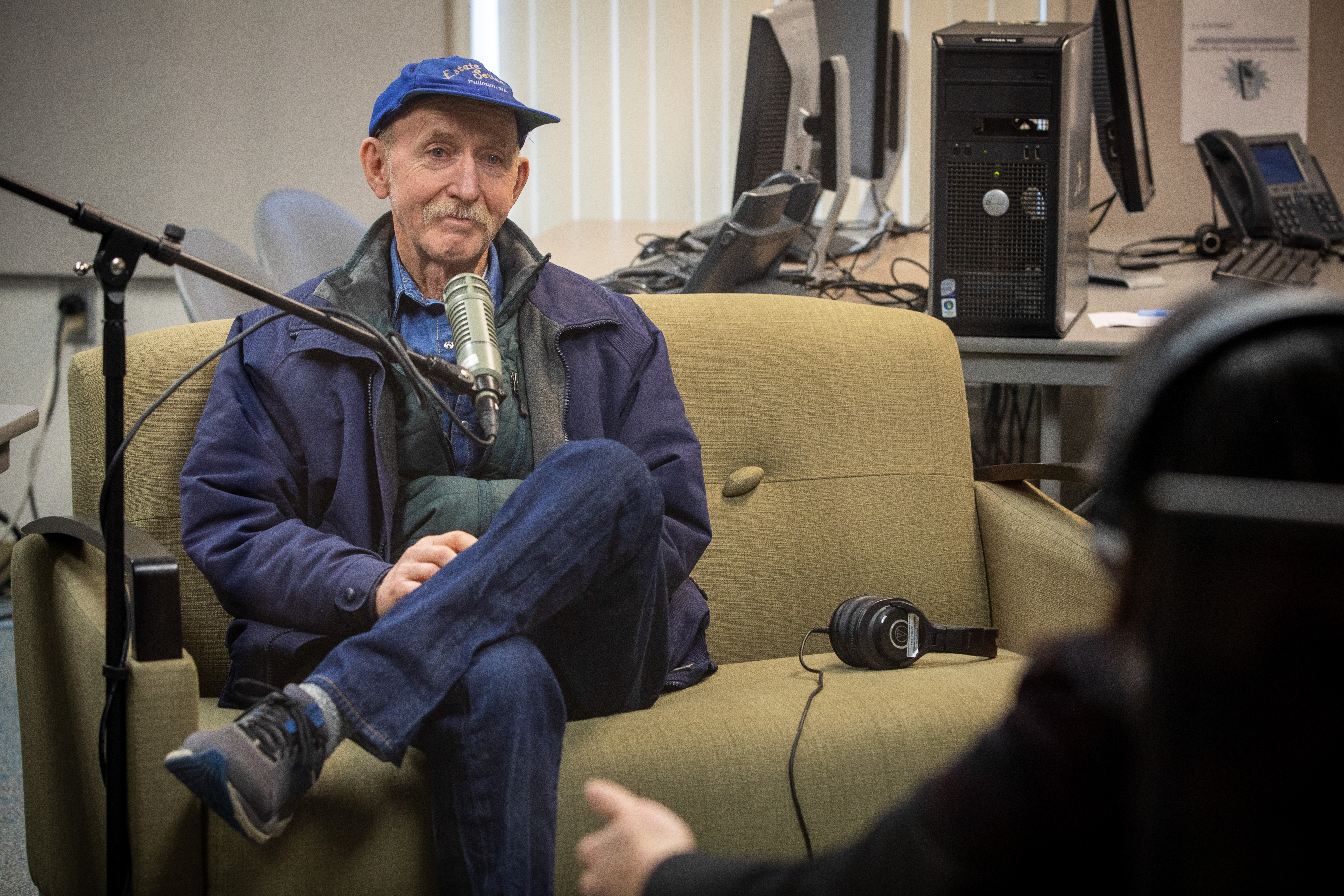
You Inherited A House Full Of Stuff. What’s Next? ‘Traverse Talks’ Episode 38 – With Estate Services Owner Rich Old
Rich Old recording this episode of Traverse Talks on March 3rd, 2022. Grieving the loss of a loved one is already hard enough. To make matters worse, many people have

